Peter Gabriel

Musician • Singer • Songwriter • Activist • Record Producer
Birth Date: February 13, 1950
Age: 74 years old
Birth Place: Woking, Surrey, England, UK
Partners: Rosanna Arquette
Bands: Genesis
One of the most unique and innovative artists in popular music for over 40 years, Peter Gabriel was a critically acclaimed singer and composer as well as a leading force in the advancement and dissemination of entertainment technology and a global force in the promotion of human rights.
He gained initial fame as the singer for the English rock band Genesis, but attention over his complex, dreamlike songs and bizarre stage costumes forced him to part ways with them in the mid-1970s. In the 1980s and early 1990s, he reinvented himself as a solo performer with a string of deeply personal albums that combined the latest electronic production techniques with stirring world music beats; his 1986 album So made him a star with hits like "Sledgehammer" and "In Your Eyes." Gabriel used his new status to pursue more personal interests, including the promotion of human rights through Amnesty International, world music through WOMAD, and a myriad of technological innovations. His contributions to popular music and media, as well as his tireless championing of freedom for all people, made him among the most respected and influential figures in entertainment history.
Born Feb. 13, 1950 in Chobham, a village in the county of Surrey, England, Peter Brian Gabriel was the son of Italian-born electrical engineer, Ralph Parton Gabriel, and his wife, Edith. Music was a part of Gabriel's life from an early age, thanks to his mother, who taught him to play clarinet. His father's fascination with electronics, and in particular with entertainment and education through technological means, would also have a lingering effect on Gabriel's future endeavors.
After attending the preparatory school Cable House, he went on to the boys' boarding school Charterhouse. A shy person by nature, he sought refuge in music and found a companion in fellow student Tony Banks, who shared his love for the current pop scene. The pair had been playing separately in bands but soon decided to join forces in a group called Garden Wall. Along with drummer, Chris Stewart, the trio's debut at Charterhouse in 1965 was marked by Gabriel showering the small crowd with rose petals - a foreshadowing of his theatrical stage performances to come.
Stewart was friendly with Charterhouse's other resident band, The Anon, which featured Anthony Phillips, future Savoy Brown member Rivers Job, singer Richard McPhail (later Genesis' sound engineer) and a new student, Mike Rutherford, on guitar. The group fractured in 1966, leaving Phillips and Rutherford to join Gabriel, Banks and Stewart in a new outfit. Fellow Charterhouse student and budding producer Jonathan King dubbed them Genesis after sponsoring a show at the school in 1968. He also took the group under his wing and got them signed to Decca Records.
Their debut album, From Genesis to Revelation, was released in 1969; though a non-starter on the charts, it did not dissuade Gabriel and the group from pursuing a pop career in earnest. The group's penchant for lineup changes also began during this period. Stewart was replaced by John Silver during the recording of From Genesis, after which he was ousted in favor of John Mayhew.
Genesis soon abandoned Decca in favor of Charisma Records, a label more in tune with experimental bands like Van der Graaf Generator and The Alan Parsons Project, as well as the anarchic comedy of Monty Python. The label released the band's second album, Trespass (1970), which, while retaining the folk-rock trappings of their debut release, also suggested the direction in which Genesis' music would go for much of the subsequent decade - long, complex musical passages built on driving rhythms and frequent time signature changes, anchored by Gabriel's soulful vocals. Genesis underwent another lineup change following the release of Trespass - stage fright forced Anthony Phillips to quit the band, which threw the group into turmoil. Gabriel placed an advertisement in Melody Maker for his replacement, which yielded future British guitar hero, Steve Hackett. Mayhew too was out, and his seat was taken over by former teen actor-turned-musician, Phil Collins.
The new lineup, which would remain in place for the next five years, rose to fame among fans of progressive rock, thanks to its elaborate songs and Gabriel's increasingly eclectic presence as a frontman. Live shows frequently saw him dressed in all manner of costumes - from flowers to animals - and spinning surreal stories between numbers. Gabriel was also the band's chief lyricist during this period, and the combination of his otherworldly material and stage presence naturally made him the focus of attention from the press and fans alike.
This focus was one of several factors that contributed to his departure from the group in 1975. Fears about his growing status in a band that was initially envisioned as a collective helped to fuel the split, as did creative conflicts over the double concept album The Lamb Lies Down on Broadway (1974), which saw Gabriel frequently absent from recording sessions to tend to his wife, Jill Moore, who had become ill during her pregnancy with their first child, daughter Anna-Marie. By the end of the year, Gabriel announced that he was leaving Genesis, but honored his commitment to the group by touring with them until late 1975, when a statement regarding his status was released to the press.
Gabriel spent much of the next year in deep self-reflection while composing material for what would eventually become the first of three self-titled solo albums. In interviews, Gabriel explained that the reason for giving each of the albums the same title was to suggest a continuation of established themes and ideas in a single volume, like a magazine. The first, frequently referred to as Car due to the cover image of Gabriel behind a rain-slicked windshield, yielded one of his most enduring compositions, "Solsbury Hill," which detailed his feelings over the break with Genesis and time spent afterwards with his family and simple pursuits like vegetable gardening. A modest Top 40 hit in 1977, it was followed by Gabriel's first tour as a solo artist and a second self-titled record, also known as Scratch due to the image of the artist making long furrows into the album cover with his fingers. It failed to match the success of Car.
Gabriel rebounded in the 1980s with a fresh and innovative approach inspired by two burgeoning interests - music technology and world music. Both were strong influences on his third solo LP, known among fans as Melt because of its cover image, which featured a portrait of Gabriel in mid-dissolve. Exceptionally dark in its subject matter - "Intruder" and "No Self-Control" appeared to concern states of mental instability, while "Family Snapshot" offered a glimpse into the mind of a killer - the album was a No. 1 hit in the UK and yielded a Top 10 hit with the sinister "Games Without Frontiers." The album closer, "Biko," about imprisoned South African activist Stephen Biko, announced Gabriel's interests in the politics and culture of non-Western countries, which came to fruition with his organization, WOMAD (World of Music, Arts and Dance).
Founded with Thomas Brooman and Bob Hooton, the organization blossomed into a series of events that celebrated the music of diverse cultures from around the world. The endeavor's lack of star power made it a pricey undertaking, and nearly resulted in Gabriel's financial ruin. Relief came from Genesis manager Tony Smith, who suggested that Gabriel reunite with his former bandmates for a show in 1982. The outfit's most popular line-up - Gabriel, Banks, Mike Rutherford, Collins, and Steve Hackett performed at the National Bowl in October of that year, and raised enough funds to keep WOMAD solvent. WOMAD eventually became a regular concert attraction around the world, and helped to launch the careers of several world music stars, including Nusrat Fateh Ali Khan and Ozomatli.
Gabriel's solo career was also on the rebound thanks to his fourth solo release, Security. The album was his first for a new label, Geffen, which required him to give it a title in order to differentiate it from his previous three, which had been released on Atlantic. One of the first albums recorded entirely on digital tape and anchored by music and sounds created by the Fairlight CMI sampling computer, Security was the perfect synthesis of Gabriel's fascination for electronics and world beats. The album yielded his first Top 40 hit in the States - the arresting "Shock the Monkey" - which rose to the top of the Billboard charts; the music video, which featured Gabriel in white tribal paint and images of terrified monkeys, also topped MTV's video charts. Gabriel's extensive tour for the album saw him returning to the avant-garde theatrics of his Genesis days. A double album of recordings from the tour was released in 1983 as Plays Live.
In 1984, Gabriel added film composer to his resume by providing the haunting score for Alan Parker's psycho-drama "Birdy," which combined new instrumental tracks and remixes from his solo albums. The following year, he launched his recording studio, Real World, which saw artists ranging from Van Morrison to New Order cut albums in its elaborate complex. Real World eventually established its own record label in 1989, and released records by such eclectic performers as The Blind Boys of Alabama and Dengue Fever. The year 1986 also saw Gabriel's deepening involvement with global human rights issues with his United Nations University for Peace, which attempted to establish an international human rights computer network.
Gabriel released his fifth and most successful solo album, So, that same year. Buoyed by a trio of massive hits - the ebullient soul number "Sledgehammer" and the heart-rending "In Your Eyes" and "Big Time" - it rose to No. 1 on both the U.S. and UK charts. The video for "Sledgehammer," a tour-de-force of stop motion animation by Stephen R. Johnson, Aardman Animation of "Wallace and Gromit" fame, and the experimental legends the Brothers Quay, won MTV's Video of the Year award in 1987. Gabriel later joined such established superstars as U2 and Sting for a tour to benefit Amnesty International; a second tour for the organization, this time featuring Bruce Springsteen and Tracy Chapman, followed in 1988. That same year, Gabriel gave an impassioned performance of "Biko" at a tribute to Nelson Mandela at London's Wembley Stadium.
Passion, his 1989 soundtrack for Martin Scorsese's controversial film version of "The Last Temptation of Christ" (1988), earned him some of the most effusive praise of his musical career. The album, which combined modern ambient sensibilities with world music influenced by the sonic landscape of the Middle East in Christ's lifetime, helped to further introduce many of Gabriel's Real World artists, including Youssou N'Dour and Baaba Maal, to a global audience. The soundtrack would go on to earn him his first Grammy Award and a Golden Globe nomination for Best Original Score.
Gabriel's personal life during this period stood in stark contrast to the abundance of success in his musical career. His marriage to Jill Moore, his childhood sweetheart, had unraveled, as had a tempestuous relationship with actress Rosanna Arquette. Both experiences, as well as his struggles to maintain a relationship with his daughters, informed his 1992 solo album Us. The highly personal album produced two modest hits, "Digging in the Dirt" and the "Sledgehammer"-esque workout "Steam," both of which won Best Music Video Grammys. To promote Us, he commissioned 11 contemporary artists to create original artworks and films for each of the 11 cuts on the CD.
That same year, Gabriel co-founded WITNESS, a human rights organization that trains activists to use media and communication technology to document abuses in their native countries. In 1993, he launched another WOMAD tour, this time with Us collaborator Sinead O'Connor on the bill; a 1994 double CD, Secret World Live was released in 1994. He also created Real World Media to develop and produce CD-ROMs that utilized the furthest limits of available technology. Two of the company's releases, "Xplora" and "Eve," combined Gabriel's music and interactive technology in presentations that earned them the prestigious Milia d'Or Award at Cannes in 1996. Gabriel was also tapped to create a show for the central space in London's Millennial Dome. The attraction, which opened on New Year's Day in 2000, was preserved on a soundtrack titled OVO. Despite the flurry of activity, he still found time to lend his voice to the song "That'll Do," written by Randy Newman for the movie "Babe: Pig in the City" (1998). The pair later performed the song at the 1999 Academy Awards ceremony.
The new millennium saw Gabriel expanding his influence to a wide variety of platforms, while still retaining his interest in music and media. He was a co-founder and board member of On Demand Distribution (0D2), now the dominant online music download service in Europe. Two years later, he completed his third film soundtrack, Rabbit-Proof Fence for Australian director, Philip Noyce. The Golden Globe-nominated CD was followed by Up (2002), his first full-length studio album in over a decade. Though it failed to produce any significant hits, Gabriel's loyal fan base helped send it to Top 10 status on the American charts. A world tour followed in 2003 and 2004, for which Gabriel was joined by his daughter Melanie on backing vocals; a DVD of the tour was released later that same year, as well as a greatest hits compilation, Hit, in 2004. A second DVD, "Still Growing Up: Live and Unwrapped" was highlighted by a documentary about Gabriel directed by his daughter, Anna.
With WOMAD, Gabriel and the environmental organization Eden Project created "Africa Calling," which brought together leading African and world music stars for a performance that became part of the Live 8 concerts to benefit world hunger. That same year, he joined forces with entertainment entrepreneur David Engelke to purchase Solid State Logic, one of the leading manufacturers of mixing consoles and digital audio products. In 2007, Gabriel and Virgin Group Chairman Richard Branson were named by former South African president Nelson Mandela as sponsors for The Global Elders, a group of public figures and human rights activists who worked to solve worldwide issues. Gabriel and Branson had approached Mandela in the late 1990s to launch the group, which counted Nobel Peace Prize winners Desmond Tutu and Jimmy Carter among its members.
Gabriel's tireless work for human rights earned him the Ambassador of Conscience Award from Amnesty International in 2008, as well as the Quadriga United We Care Award from Werkstatt Deutschland, a German non-profit organization. His worldwide fans were pleased to discover that he had contributed several new songs to the soundtrack for the Pixar animated feature "WALL-E" (2008), one of which, "Down to Earth," won a Grammy Award. It was subsequently nominated for an Academy Award for Best Original Song. Gabriel later made headlines by canceling his performance at the ceremony, citing the ceremony's practice of whittling down nominated tracks to just 65 seconds of performance as the reason for his absence.
Credits

Jeff Buckley Forever
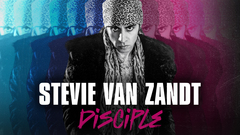
Stevie Van Zandt: DiscipleStream

Squaring the Circle: The Story of Hipgnosis

Lindisfarne's Geordie Genius: The Alan Hull Story

Peter Gabriel: Live in Verona - Taking the Pulse

Genesis
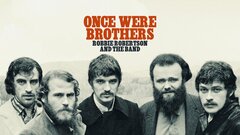
Once Were BrothersStream

80s Hits

Ptice kao mi

Esopus fabulái

New Blood Live

Genesis: Sum of the Parts

The Kate Bush Story: Running Up That Hill

Peter Gabriel: Live In Athens 1987

Classic Albums: Peter Gabriel

Duets at the BBC

Under African Skies
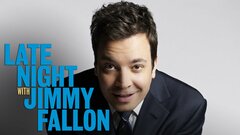
Late Night With Jimmy Fallon

Later Live... with Jools Holland

WALL-E - Der Letzte räumt die Erde auf

WALL-E

WALL-E

WALL-E - sv.tal
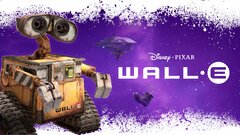
WALL-EStream

WALL-E

The Better Show

Sea Monsters: A Prehistoric Adventure

Peter Gabriel Still Growing Up Live & Unwrapped

Peter Gabriel Still Growing Up Live & Unwrapped

The Ungrateful Dead: In Search of International Justice

Rabbit-Proof Fence

The Paris Concert for Amnesty International
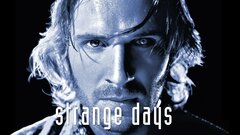
Strange Days

Peter Gabriel: Secret World Live

La constellation Jodorowsky
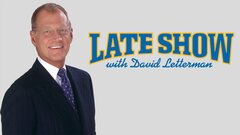
Late Show With David Letterman

Later ... with Jools Holland
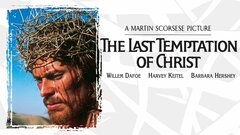
The Last Temptation of ChristStream

Peter Gabriel: Sledgehammer

Birdy

Peter Gabriel: Shock The Monkey

Peter Gabriel: Games Without Frontiers











